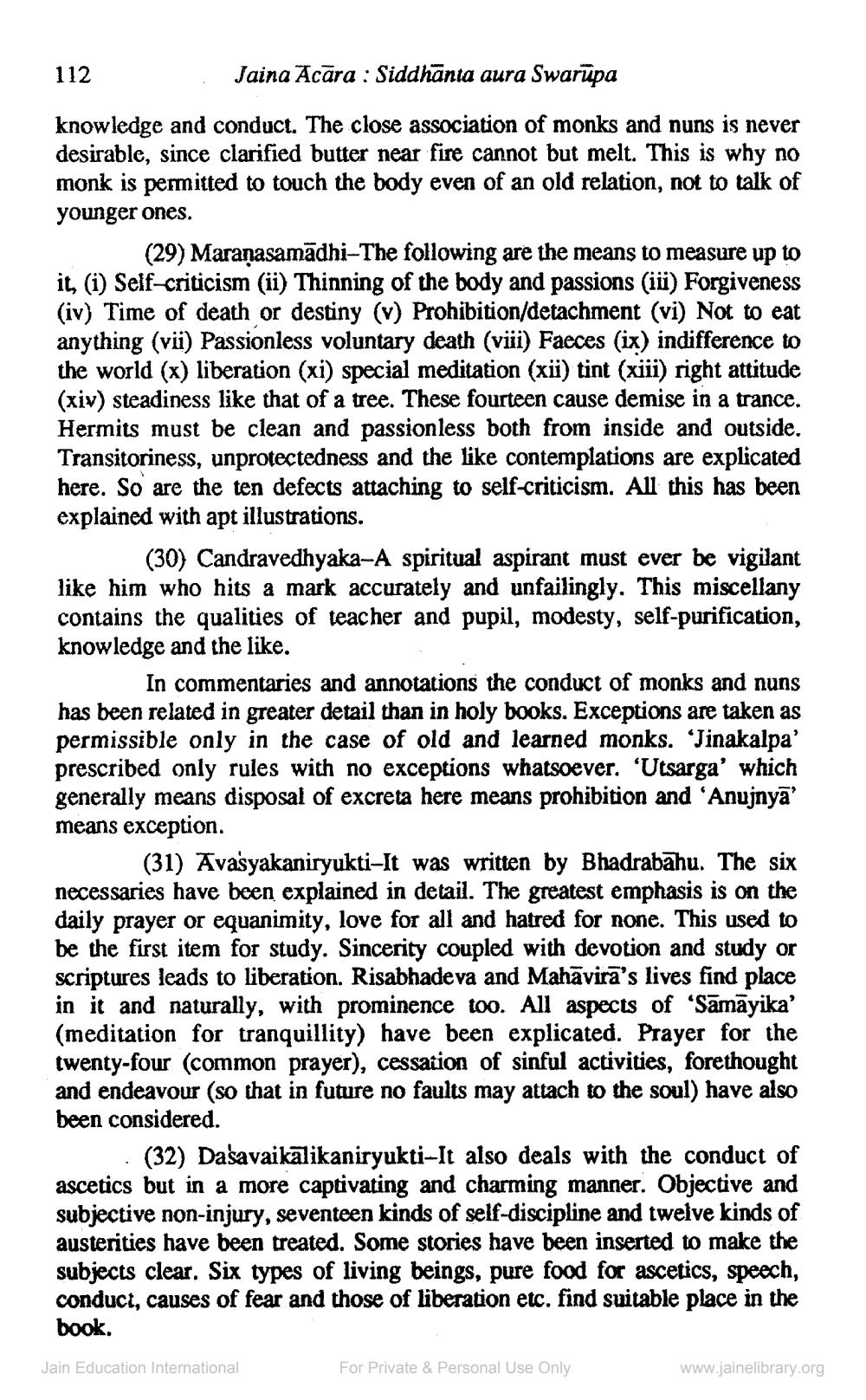________________
Jaina Acara: Siddhanta aura Swarupa
knowledge and conduct. The close association of monks and nuns is never desirable, since clarified butter near fire cannot but melt. This is why no monk is permitted to touch the body even of an old relation, not to talk of younger ones.
112
(29) Maraṇasamādhi-The following are the means to measure up to it, (i) Self-criticism (ii) Thinning of the body and passions (iii) Forgiveness (iv) Time of death or destiny (v) Prohibition/detachment (vi) Not to eat anything (vii) Passionless voluntary death (viii) Faeces (ix) indifference to the world (x) liberation (xi) special meditation (xii) tint (xiii) right attitude (xiv) steadiness like that of a tree. These fourteen cause demise in a trance. Hermits must be clean and passionless both from inside and outside. Transitoriness, unprotectedness and the like contemplations are explicated here. So are the ten defects attaching to self-criticism. All this has been explained with apt illustrations.
(30) Candravedhyaka-A spiritual aspirant must ever be vigilant like him who hits a mark accurately and unfailingly. This miscellany contains the qualities of teacher and pupil, modesty, self-purification, knowledge and the like.
In commentaries and annotations the conduct of monks and nuns has been related in greater detail than in holy books. Exceptions are taken as permissible only in the case of old and learned monks. 'Jinakalpa' prescribed only rules with no exceptions whatsoever. 'Utsarga' which generally means disposal of excreta here means prohibition and ‘Anujnyā' means exception.
(31) Avasyakaniryukti-It was written by Bhadrabahu. The six necessaries have been explained in detail. The greatest emphasis is on the daily prayer or equanimity, love for all and hatred for none. This used to be the first item for study. Sincerity coupled with devotion and study or scriptures leads to liberation. Risabhadeva and Mahāvira's lives find place in it and naturally, with prominence too. All aspects of 'Samāyika' (meditation for tranquillity) have been explicated. Prayer for the twenty-four (common prayer), cessation of sinful activities, forethought and endeavour (so that in future no faults may attach to the soul) have also been considered.
(32) Dasavaikalikaniryukti-It also deals with the conduct of ascetics but in a more captivating and charming manner. Objective and subjective non-injury, seventeen kinds of self-discipline and twelve kinds of austerities have been treated. Some stories have been inserted to make the subjects clear. Six types of living beings, pure food for ascetics, speech, conduct, causes of fear and those of liberation etc. find suitable place in the book.
Jain Education International
For Private & Personal Use Only
www.jainelibrary.org




